Special Workshops
ESTC 2022 schedules some Special Workshops.
Hot topics in the field of electronic packaging are presented and discussed. Share your experiences and opinions with colleagues.
Workshop 1 - Climate neutrality and sustainable electronics
Nils F. Nissen, Fraunhofer Institute for Reliability and Microintegration (IZM) Berlin, Germany
Petru Demian, Technical University Timisoara, Romania
Although the other environmental hot spots of electronics – such as phasing out critical substances and minimizing harm from electronic waste – are not solved, the global focus is currently on climate neutrality and the accounting of greenhouse gas emissions.
This workshop will explain carbon accounting through the lens of electronic products and of the development of electronic technologies. Many electronics companies are either pushing for ambitious carbon reduction goals themselves, or are confronted with carbon disclosure requests from their business partners in the supply chain. The workshop will include time to share experiences from participants across the supply chain and from research and development.
For many products of the electronics industry, the carbon footprint is dominated by the energy consumption in the use phase. But for products with optimized energy efficiency, or with extreme density of ICs and in particular for mobile products the main environmental burden is caused by the manufacturing. In these cases, the accounting of carbon emissions throughout the whole supply chain is key to understanding, measuring and minimizing the upstream emissions, which are not directly caused by the company’s own operations. A major focus of political activity and hence of standardization and implementation is therefore on pragmatic delivery of carbon emission data through the supply chain. The workshop will also provide context of other environmental and sustainability issues not directly related to carbon emissions.
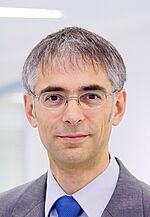
Dr. Nils F. Nissen is head of the department Environmental and Reliability Engineering at the Fraunhofer Institute for Reliability and Microintegration (IZM) in Berlin, Germany. The Environmental and Reliability Engineering department of this microelectronics institute is supporting technology development by integrating environmental and reliability aspects right from the start. This means dealing with all environmental facets of new electronic technologies, from eliminating toxic substances to improving the recycling of products, from screening the latest process technologies in electronics to the ecodesign and environmental assessment of products and systems. CO2 footprinting and climate neutrality are the most prevalent topics in this area currently. In total, Dr. Nissen has been working 27 years at the juncture of electronics technology and environmental issues, and he is the Technical Chair of the Electronics Goes Green conference series.
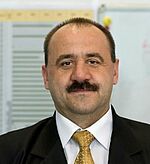
Petru Demian, Ph.D. in Electronic and Telecommunication (2004) from the Technical University Timisoara in the field of “Optimizing testing method for numeric electronic equipment”.
From 1992 to 2000 he was Assistant or Junior Lecturer at the Technical University Timisoara and taught Numeric Circuit, Microcontrollers and Industrial Testing courses and laboratories. In parallel with the University activities, he worked in SW development and SW testing projects for complex airplane units for Boing 777, for Rada/Timtech local company branch.
In the period 2000-2006, he managed SW development teams for international projects in Continental Company (operating systems for body control units and instrument clusters, complex application modules and SW tools).
In the period 2006-2018, he was managing the Industrial Engineering activities for the Continental Timisoara Plant that involved SW tools & database for production, production equipment, test equipment and process development.
Since 2018 he is managing the FM and Special project activities in Continental Plant that involve projects in sustainability end energy efficiency increase (CHP, common rail implementation, Green Plant label actions, WW Energy responsible inside the business unit), projects in FM (extension of actual factory, energy efficiency improvement) and EU Project ZDMP user cases implementations.
He is the Plant interface with more Universities from Timisoara (Electronic and Telecommunication, Automatic & Computer and Management & Transportation) and running together more projects in SW, Industry 4.0 energy efficiency and sustainability.
Workshop 2 - iRel40 – Intelligent Reliability along the Value Chain
organized by Klaus Pressel and Josef Moser, iRel40 project leadership team
The major trend in Microelectronics is the move towards higher system integration driving increasing compactness and complexity. All this must be at acceptable cost and required quality and reliability. The ECSELJU project iRel40 has the ultimate goal of improving reliability of electronic components and systems by reducing failure rates along the entire value chain. In iRel40 75 partners from 13 countries are collaborating along the value chain from wafer production to system integration and combine their strength to enhance reliability in Europe. In this iRel40 session we present first results on four iRel40 related topics: The first presentation is on innovative testing, the second is on intelligent manufacturing, the third is on development towards virtual prototyping, and the fourth is on artificial intelligence applied to image detection. Target of all four topics is on research and development applying Artificial Intelligence, Digital Twins and Machine Learning concepts for reliability improvement.
Following presentations will be given:
Intelligent Manufacturing – From the Chip – Package – Board/System: Impact on reliability
Klaus Pressel, Josef Moser et al. (Infineon Technologies, Germany)
Holistic Testing in iRel40 and Impact on Reliability
Susan Zhao (Signify, The Netherlands)
Virtual Design for Life Time optimization of M2X Modules – A Use Case from the IRel40 project
Thomas Krivec et al. (AT&S, Austria)
AI applied to CSAM Images
Jason Zi Jie Chia et. al. (Elmos Semiconductor)
Workshop 3 - Nanopackaging / Nanotechnology
Moderator
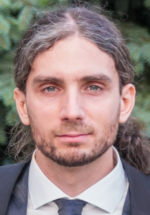
Attila Bonyár is an associate professor and head of the Nanotechnology laboratory at the Department of Electronics Technology, Faculty of Electronics Engineering and Informatics, Budapest University of Technology and Economics. He has two M.Sc. degrees in electrical engineering (2009) and biomedical engineering (2011), a Ph.D. (2014), and habilitation (2021) in electrical engineering. His current research activities are focused on the development of optical biosensor technologies utilizing plasmonics, low-dimensional nanomaterials, nanocomposites and nanometrology. He is the chair of the IEEE NTC/EPS Nanopackaging/Nanotechnology Technical Committee (since 2022, co-chair since 2020) and actively serves in many other international committees in elected positions. He is a Steering Committee member for two regional IEEE conferences (IEEE-SIITME, International Symposium for Design and Technology in Electronics Packaging, since 2014 and IEEE-ISSE, International Spring Seminar on Electronics Technology, since 2017). Since 2019 he is the chair of the IEEE Hungary&Romania EPS&NTC Joint Chapter. He also serves IEEE NTC as a regional chapter coordinator in R8.
---------
Panelists
The Gold-Tin Intermetallic Compounds Evolution After The Rolling Process
Traian Cucu, Ametek Coining (USA)
The Gold-Tin alloys are the most commonly used alloys for high temperature soldering, with the 80%Au-20%Sn by weight, being the preferred flavor, due the eutectic nature of the mixture. The melting point of the 80%Au-20%Sn is around 280°C making it ideal for the flip-chip assembly process, that has a 270°C-350°C peak temperatures requirement. Furthermore, its capability to be reflowed without flux guarantees the application in high power applications, photonics integration and hermetic encapsulation (full hermetic, especially vacuum enclosures). Its high corrosion resistance makes it an ideal candidate for medical devices applications and sensors for high corrosive environments. The Gold-Tin intermetallic species play an important role in the bulk performance of the joint, after the soldering process and the ratio of different species, in the bulk material, both before and after the reflow process, will have a direct influence on material performance. This paper looks at the evolution of different intermetallic species throughout the manufacturing process and considers the optimal ratios in the final Gold-Tin part, before the reflow process, in order to achieve a reliable joint making use of a wide (most flexible) process window.
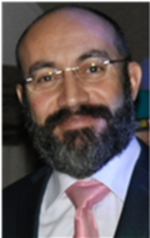
Traian Cucu is presently leading the Engineering Department at Ametec Coining. He oversees all R&D and engineering activities, providing technical solutions and new materials to support the full solution offering for the packaging and assembly markets. He received his B.Sc degree from “Politehnica” University of Timisoara, , Faculty of Electrical and Power Engineering, Specialization: Industrial Power Systems and his Ph.D. from Politechnic University of Bucharest, Faculty of Electronics, Telecommunications and Information Technologies, Specialization: Electronic Technology. He was working with major OEMs on transition to finer pitch designs and 3D assembly systems for the next generation devices. From 2013, as Global Product Manager for Solder Paste, was in charge of the solder paste product development, overseeing the product development programs and directing Alpha’s global solder paste strategy, during a period of 4 years. During that period, he was directly involved in new solder paste chemistry platforms developments and new alloy developments. From 2017, as Global Applications and Technologies Experts Group Leader at MacDermid Alpha Electronics Solutions, he was overseeing the new applications and technologies development programs for the assembly market. Since 2021 he is leading the Engineering Department at Ametec Coining where he is involved with new alloy development programs for soldering and brazing alloys and engineered materials programs for advanced electronic packaging.
----------
Metrology Solutions For Nanoscale Leading-Edge Technology Nodes
Marius Enachescu, Center for Surface Science and Nanotechnology University Politechnica of Bucharest (Romania)
The importance and necessity of semiconductor devices in our lives is indisputable. Researchers and engineers are devoting continuous efforts to develop key technologies for the new ICs generations with increasingly smaller electronic nodes following the Moore's Law. Current developments are targeting 3nm and 2nm nodes. One of the crucial pillars that allow such technological advances is the metrology. It is mandatory to optimize/develop the metrological tools and enable them to meet the requirements imposed by the new electronic nodes. CSSNT-UPB offers state-of-the-art metrological solutions/services in support of industrial developments, carried out within the most challenging nanoelectronics projects (e.g. R3POWER-UP, REACTION, OCEAN12, MADEiN4, PiN3S, IT2, BEYOND5).
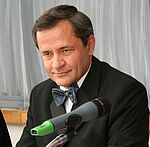
Professor Dr.rer.nat. Marius Enachescu with international recognition, being among the world pioneers in designing and building STM-AFM systems as basic instruments for investigations at atomic and nanoscale (at Technical University of Munich, Germany, 1990-1995). After a long period of research in world leading laboratories in the field of nanoscience and nanotechnologies (1997-2009 at Lawrence Berkley laboratory and CEO&CTO-Marena Systems Corporation, Hayward-Silicon Valley, USA) he returned in his country of origin, Romania, bringing with him an invaluable expertise in exploiting quantum effects and nano-scale phenomena in order to design and develop new fundamental concepts and building innovative devices for various applications, including nanoelectronics, nanofabrication, nanotechnologies, nanotribology, nanomechanics and nanooptics fields. He is currently Professor at University POLITEHNICA of Bucharest and Vice-Rector and Director of Council for Doctoral Studies at the University of Pitesti. Professor Enachescu is the author/co-author of 12 International patents: USA-5, Taiwan-2, Europe-4, China-1; 9 books/chapters, all in international publishing houses; over 100 articles published in ISI journals; h-index: 22; over 25 invited lectures to international conferences and universities; author/co-author of ~250 other invited and contributed presentations at various international conferences/congresses. He led over 38 international projects in USA and Europe and has been awarded with gold medals, national and international prizes for his scientific achievements. He is also the founder and Head of the Center for Surface Science and NanoTechnology (CSSNT) at UPB.
----------
Next generation of enabling AM technologies for (sub)-micro resolutions
Goran Mišković, Silicon-Austria (Austria)
In this presentation an overview of the next generation AM technologies will be presented. Main focus will be placed on Electrohydrodynamic Printing – EHD printing.
EHD (also known as E-jet) is a cutting-edge printing technology which is one of the most promising enabling technology for additive manufacturing of the future. In this talk, SAL’s beyond state-of-the-art EHD prototype printer will be introduced. Basic EHD working mechanism will be explained and the printer’s advanced features and capabilities will be presented. Last but not least, some of the in-house printed structures will be shown.
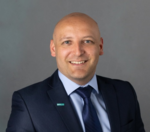
Dr. Goran Mišković (Senior scientist and Project Manager) IEEE Senior member and nanopackaging TC member. He received his Ph.D. with honors in 2016 from Vienna University of Technology (TU Wien), where he dealt with metal oxide-based gas sensors , with the accent on detection of NOx gasses. From 2012 till 2016, he worked as a lecturer and project assistant on two FP7 projects as well as on several bilateral and industrial projects at TU Wien, where he dealt sensors and actuators fabricated with multilayer Low Temperature Co-Fired Ceramic (LTCC) technology. After completion of the doctoral studies, he has switched to the industry and joined TDK Electronics, where was working in the corporate R&D - innovative topic group. His main activities and responsibilities were evaluation and assessment of new technologies, concepts and ideas. Since 2020, he has joined Silicon Austria Labs, Austria’s reputable R&D and competence center, and since July 2021 he became certified IPMA Project Manager. He is a member of the Sensor System research division and his main research interests are in field of heterogeneous integration & packaging, sensors & actuators, additive manufacturing, material science and technology, MEMS devices, microsystem technologies, flexible and wearable electronics and hybrid systems.
----------
Introduction to Silver Sintering Technologies to Increase the Reliability of Powermodules
Michiel de Monchy, Macdermid Alpha Assembly Solutions (The Netherlands)
Sintering technologies are gaining a lot of momentum in the manufacturing processes of powermoldules. The presentation will be touching the basic principles of sintering and highlight some of the advantages of sintering with silver particles.
Michiel de Monchy is the European applications engineer for Powerelectronics within MacdermidAlpha Assembly Solutions (The Netherlands). He has been involved in powerelectronics for over 22 years and has been involved in sintering for over 10 years.
Workshop 4 - IPCEI - A Session on Industrial Research on Assembly & Packaging in Europe
organized by Klaus Pressel and Josef Moser, Infineon Technologies AG
The first “Important Project of Common European Interest on Microelectronics (IPCEI ME)”, which started in 2017, is a common project supported by the five European countries France, Germany, Italy, U.K. and Austria. The IPCEI project's overall objective is to enable research and development of innovative technologies and advanced electronics components with focus on strengthening development of production capabilities in Europe including First Industrial Deployment (FID). The second IPCEI supporting microelectronics and communication technologies in Europe (IPCEI on ME/CT) is currently under preparation. Focus of this special session at ESTC 2022 will be to present four selected examples from industry research and development in Microelectronics and Microsystems from the first IPCEI ME with special focus on assembly and packaging technologies towards system integration. Representatives of major European microelectronics industry will give an insight into their R&D results achieved to support development of fabrication capabilities in assembly and packaging for innovative products in Europe.
Following presentations will be given:
Short Introduction to IPCEI ME and IPCEI ME/CT
Klaus Pressel (Infineon Technologies, Germany), Josef Moser (Infineon Technologies Austria)
Reliabiliy of SiC Modules for Automotive Applications
Alessandro Sitta, Giuseppe Mauromicale, Angelo Messina and Michele Calabretta (STMicroelectronics, Italy)
Data Transmission Green and Fast
Claudia Ebner (AT&S, Austria) et al.
Chip-Package-Board System CoDesign applied to fan-out WLP Technology
Thomas Brandtner (Infineon Technologies, Austria) and Maciej Wojnowski (Infineon Technologies, Germany) et al.
Fan-Out Wafer-Level Package-based Millimeter Wave Modules for 5G Wireless Communication and Automotive Radar Applications
Michael Kaiser (Fraunhofer IZM), Christian Goetze (GlobalFoundries Germany) et al.
Workshop 5 - Heterogeneous Integration Roadmap (HIR) Workshop
organized by William (Bill) Chen, ASE
AGENDA
Welcome & Introduction
Erik Jung, Fraunhofer IZM
HIR Overview
Rolf Aschenbrenner, Fraunhofer IZM
Supply Chain
Kitty Pearsall, IEEE EPS President
Automotive
Vikas Gupta, ASE
SIP & Module
Klaus Pressel, Infineon
Wafer Level Packaging
Tanja Braun, Fraunhofer IZM
Round Table Discussion
(Moderator: Erik Jung)
Wrap-Up
Workshop 6 - University Level Education Activities in Electronics Packaging - Present and Future
This workshop and panel session will present a discussion of modern approaches to educate university students in the field of electronics packaging. Educators and graduates from Technical University of Berlin, Technical University of Dresden, University Politehnica of Bucharest, Rochester Institute of Technology, Binghamton University, and Auburn University will be represented on the panel. Courses, curricula, and student competitions will be discussed. In addition, industry leaders from Intel, Bosch, and Fraunhofer IZM will present perspectives on the present and future workforce needs of the electronics industry in Europe, and how universities can best prepare students for a successful career. An open question and answer session will follow the presentations by the panelists.
AGENDA
Welcome Messages
Jeffrey C. Suhling, Auburn University, USA, IEEE EPS, Vice President, Education
Introduction to the extracurricular contests: TIE - “Techniques of Interconnection in Electronics”, The step towards interconnect simulation technology
Cătălin Negrea, DarkNote Engineering, Romania
Educating the next generation of Engineers in Electronics Manufacturing and Reliability
Martin K. Anselm, Rochester Institute of Technology, USA
Education and Training in Electronics Packaging
Mark D. Poliks, Binghamton University, USA
University Level Packaging Courses in the USA and IEEE EPS Student Competitions
Jeffrey C. Suhling, Auburn University, USA
Advanced Packaging Institutions and Activities in Germany
Martin Schneider-Ramelow, Fraunhofer IZM and TU Berlin, Germany
Intel Workforce needs in Europe
Beth Keser, Intel Germany and USA
Interdisciplinarity in Hardware Integration – use case in multimarket business
Leon Brai, Bosch, Romania
Workshop Moderators
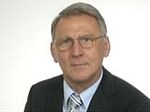
Klaus-Jürgen Wolter, Technische Universität Dresden, Germany
Prof. Klaus Wolter’s research interests have embraced many aspects of microelectronics packaging, including substrate technologies, assembly technologies, photonic packaging, MEMS, joining technologies, reliability of electronic packages, and non-destructive test methods. He is well known as co-author of six textbooks, co-editor of three book series with a total of 39 books, author and co-author of more than 200 papers. He is a senior member of IEEE-EPS. Prof. Wolter was the Director of the Electronic Packaging Lab at TU Dresden from 2003 to 2014. Currently he is a senior professor at TU Dresden.
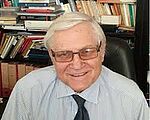
Paul Svasta, University Politehnica of Bucharest, Romania
Professor Paul Svasta is one of the most reputable personalities in the field of electronic microsystems technology. He has dedicated his whole professional activity to the topic of electronic packaging. He joined UPB, the Department of Electronics Technology and Reliability in 1968, and is the Head of Center for technological Electronics and Interconnection Techniques. Professor Svasta represent a driving force in promoting electronics packaging in many universities in Romania (within, ISSE, SIITME, TIE), and the collaboration between industry and academia, he is active within IEEE-EPS, IMAPS, APTE.
Workshop Panelists

Martin K. Anselm holds an undergraduate degree in Physics, a Masters in Mechanical Engineering and a Ph.D. in Materials Science & Engineering. Dr. Anselm's Industrial experience includes twelve years of electronics failure analysis and root cause analysis. He also managed the Universal Instruments AREA Consortium which conducted research in assembly materials, process and reliability of electronic packaging. Dr. Anselm serves as the President of the SMTA organization. Since 2014 Dr. Anselm has been teaching electronics manufacturing at Rochester Institute of Technology and is the director of the MMET department’s Manufacturing and Mechanical Systems Integrations (MMSI) graduate program.
Title of the Presentation: Educating the next generation of Engineers in Electronics Manufacturing and Reliability
Short content of the presentation: A short introduction of the topics covered in teaching mechanical and electrical engineering students in the materials and processes in electronics manufacturing. Future designers and manufacturing engineers need to understand electronics manufacturing even if they may not have the process in their own factories.
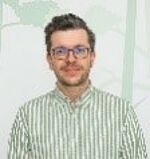
Leon Brai is the group manager at Robert Bosch Romania, being responsible for hardware integration in ADAS systems. He obtained his Ph. D. degree in mechatronics and has a strong background with industrial mobile robots where he activated prior to Bosch. He is currently managing multiple teams that are developing electronic solutions for ADAS industry and he is responsible for different educational programs at Bosch representing the company in collaboration with the universities.
Title of the Presentation: Interdisciplinarity in Hardware Integration – use case in multimarket business.
Short content of the presentation: An overview will be presented regarding the development process of an electrified baby stroller where multiple competences had to be integrated into a completely new design. Starting from the initial requirements to the final release for manufacturing, different experiences will be presented. A more in-depth example will be exposed regarding the thermal management of the system and how mechanics, electronics, reliability, and software are all coming together to offer a very close to reality simulation.
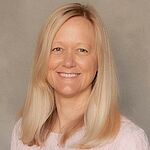
Beth Keser, Ph.D. & IEEE Fellow, is a recognized global leader in the semiconductor packaging industry with over 24 years of experience. She received her B.S. degree in Materials Science and Engineering from Cornell University and her Ph.D. from the University of Illinois at Urbana-Champaign. Beth’s excellence in developing revolutionary electronic packages for semiconductor devices has resulted in 41 U.S. patents and patents pending and over 50 publications in the semiconductor industry. Based in San Diego, Beth leads Intel’s Packaging & Systems Technology department. Currently, Beth is the President of IMAPS.
Title of the Presentation: Intel Workforce needs in Europe
Short content of the presentation: In March 2022, Intel announced plans to invest an initial 17 billion euros into a leading-edge semiconductor fab mega-site in Germany, to establish a new research and development (R&D) and design hub in France, and to expand capacities in R&D, manufacturing and foundry services in Ireland, Italy, Poland and Spain. This is the first phase of Intel’s plans to invest as much as 80 billion euros in the European Union over the next decade along the entire semiconductor value chain—from R&D to manufacturing and advanced packaging. With this landmark investment, Intel will bring its most advanced technology to the continent, helping the EU create a next-generation European chip ecosystem and addressing the global need for a more balanced and resilient supply chain. This presentation will discuss the skillsets Intel will require in Europe to support this investment.
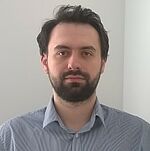
Cătălin Negrea, obtained a Ph. D. degree from Politehnica University of Bucharest in 2013, with a thesis focused on multidisciplinary modeling and electro-thermal simulation of semiconductor devices. Catalin has organized several workshops on the topic on high-speed design and is a strong advocate of the concept “simulation-driven design flow”. He has provided several talks at conferences and engineering simulation user meetings on the importance of virtual prototyping and concurrent engineering. In 2013 he was nominated as a company level expert in the field of signal and power integrity. In 2014 He founded DarkNote Engineering as an R&D service provider focused on high-speed design and thermal management virtual prototyping activities as well as compliance measurements and design validation. From 2015 he is also coordinating TIEplus, a student contest focused on the signal integrity simulation of high-speed interfaces. Catalin is the author of more than 20 scientific papers in the fields of thermal management and signal integrity.
Title of the Presentation: Introduction to the extracurricular contests: TIE - “Techniques of Interconnection in Electronics”, The step towards interconnect simulation technology
Short content of the presentation: An introduction will be made that describes a series of electronics packaging know how scale-up events, TIE, TIEplus and TIE M. The organizing structure and the topics are similar with the industry requirements it is worthy to understand the basics of a 3-decade environment. The students who participated proved there is a high return on invest (ROI) in specialists and experts for the IEEE EPS community.

Mark D. Poliks is a SUNY Distinguished Professor in Materials Science and Engineering and Systems Science and Industrial Engineering at Binghamton University. He is the director of the Center of Advanced Microelectronics Manufacturing a New York State Center of Advanced Technology and the New York Node of NextFlex Manufacturing USA, a federally funded manufacturing innovation institute. Poliks was general chair of the 69th ECTC, and currently serves as director of student programs for IEEE EPS. Poliks received his Ph.D. in Materials Science and Engineering from The University of Connecticut and was a senior technical manager and director at the IBM Corporation before transitioning to a full-time academic appointment at Binghamton.
Title of the Presentation: Education and Training in Electronics Packaging
Short content of the presentation: Training the next generation of scientists and engineers to work in the field of electronics packaging involves a highly interdisciplinary program of study and research involving design, materials and processing, fabrication, test, and reliability. This presentation will describe courses and programs at Binghamton University as well as those that are part of NextFlex’s workforce development programs.
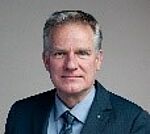
Martin Schneider-Ramelwo, born in 1964 in Thuine (Emsland) in the north-west of Germany near the Dutch border. Professor Martin Schneider-Ramelow has established himself as one of Germany’s leading microelectronics researchers and teachers, serving as Acting Director of the Fraunhofer Institute for Reliability and Microintegration IZM and Professor of “Materials in Hetero System Integration” at the Technical University of Berlin since 2017. Beginning his academic career in several research assistant roles in metallurgy and materials science at the TU Berlin, Professor Schneider-Ramelow completed his engineering doctorate with honours at the University’s then Institute of Materials Technologies in 1998 and joined Fraunhofer IZM in August that year. His research and development work, especially in the field of metallic interconnects and their reliability, is one pillar of Professor Schneider-Ramelow’s standing in his field. The other is his continued commitment to scientific education, initially as scientific staff and lecture at the TU Berlin (from 1992-1997 in the field of material science for students of Mechanical Engineering), as head of the “Materials Technology” mentoring course of the TU Berlin’s International Office (from 1995 to 2003), as lecturer again in the field of material science but for students of Electrical Engineering and, from 2014, as Visiting Professor and later Full Professor at the University. The scientific community’s high regard for Prof. Schneider-Ramelow is reflected in his 2013 appointment as Senior Member of the IEEE and his IMAPS fellowship and Fellow of the Society Award in 2016.
Title of the Presentation: Advanced Packaging Institutions and Activities in Germany
Short content of the presentation: Prof. Martin Schneider-Ramelow will introduce German Universities as well as Fraunhofer Institutes acting in the field of advanced microelectronic packaging. He also will highlight some activities in this content with great impact to the European Industry and give a short outlook to ongoing research activities.

Jeffrey C. Suhling received his Ph.D. degree in Engineering Mechanics from the University of Wisconsin. He then joined the Department of Mechanical Engineering at Auburn University, where he currently holds the rank of Quina Distinguished Professor and Department Chair. From 2002-2008, he served as Center Director for the NSF Center for Advance Vehicle Electronics. His research interests include applications of solid mechanics and materials science to electronics packaging. Dr. Suhling currently serves as Vice President for Education for the IEEE Electronics Packaging Society, and was the General Chair of the 2019 IEEE ITherm Conference.
Title of the Presentation: University Level Packaging Courses in the USA and IEEE EPS Student Competitions
Short content of the presentation: An introduction will be made to interdisciplinary courses offered at several universities in the USA that cover various aspects of electronics packaging including mechanics and reliability, thermal management, materials science, electrical design, and assembly and manufacturing. In addition, the opportunities in the IEEE Electronics Packaging Society that are available to university students to present their research and compete will be reviewed.
Special Workshop - Nanotechnology Council (NTC) special session
This special workshop is dedicated to the IEEE Nanotechnology Council (NTC). In the region of the conference, NTC has two regular chapters (in Romania and Hungary) and also two student branch chapters (in Bucharest and Budapest). NTC past-president (2020-2021) Prof. James E. Morris meets with the chapter officials in the form of a panel discussion and will talk about NTC and chapter benefits. He will also deliver a technical presentation on the topic of Electronic Transport in Discontinuous Metal Thin Films.
Welcome Messages
Dr. Attila Bonyár (Budapest University of Technology and Economics, Hungary)
Introduction to the IEEE Nanotechnology Council and NTC chapters + Panel discussion
Prof. James Morris (Portland State University, USA)
Electronic Transport in Discontinuous Metal Thin Films
Prof. James Morris (Portland State University, USA)
Moderator

Attila Bonyár is an associate professor and head of the Nanotechnology laboratory at the Department of Electronics Technology, Faculty of Electronics Engineering and Informatics, Budapest University of Technology and Economics. He has two M.Sc. degrees in electrical engineering (2009) and biomedical engineering (2011), a Ph.D. (2014), and habilitation (2021) in electrical engineering. His current research activities are focused on the development of optical biosensor technologies utilizing plasmonics, low-dimensional nanomaterials, nanocomposites and nanometrology. He is the chair of the IEEE NTC/EPS Nanopackaging/Nanotechnology Technical Committee (since 2022, co-chair since 2020) and actively serves in many other international committees in elected positions. He is a Steering Committee member for two regional IEEE conferences (IEEE-SIITME, International Symposium for Design and Technology in Electronics Packaging, since 2014 and IEEE-ISSE, International Spring Seminar on Electronics Technology, since 2017). Since 2019 he is the chair of the IEEE Hungary&Romania EPS&NTC Joint Chapter. He also serves IEEE NTC as a regional chapter coordinator in R8.
---------
Panelist
Electronic Transport in Discontinuous Metal Thin Films
Prof. James Morris (Portland State University, USA)
The structure and basic experimental electrical properties of vacuum evaporated discontinuous (island) metal thin films of discrete metal nanoparticles on insulating substrates are briefly reviewed. Then the widely accepted Neugebauer and Webb (N&W) electrostatically activated electron tunneling conduction model is covered (with enhancements) before the numerous discrepancies between this model and experimental observations are identified, e.g. minimal substrate bias effect, non-linear field distribution, anomalous AC effects, asymmetrical contact effects, and switching. A modified model, based on contact electron injection and extraction, and computer simulations are introduced which explain these discrepancies at a qualitative level. However, quantitative experimental verification of the model is not possible without stable, reproducible films of known structures. The paper concludes with a review of possible preparation techniques which could yield satisfactory samples, especially self-assembly of organically protected metal nanoparticles. One of these has already demonstrated electrostatically activated conduction.
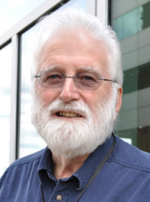
Prof. James E. Morris is a professor of Electrical & Computer Engineering at Portland State University, Oregon, and Professor Emeritus at the State University of New York at Binghamton. His B.Sc. and M.Sc. degrees in Physics are from the University of Auckland, New Zealand, and his Ph.D. in Electrical Engineering is from the University of Saskatchewan, Canada.
He is an IEEE Life Fellow and IEEE Distinguished Lecturer for both the Electronics Packaging Society (EPS) and the Nanotechnology Council (NTC). He has served CPMT and EPS in multiple roles for more than 28 years, including 20 years in the Board of Governors. He is now equally involved in the NTC, being its president between 2020-2021.
His research activities have been focused on electrically conductive adhesives and the electrical conduction mechanisms in discontinuous thin metal films, with applications to nanopackaging and single-electron transistor nanoelectronics, but with continuing projects in device modeling and sensors too. He is also actively involved in the promotion of international educational exchanges, and in Internet education. He has edited or co-authored five books on electronics packaging, including “Nanopackaging: Nanotechnologies and Electronics Packaging”. He is currently writing a sixth, and editing two more books on nanoelectronics.



















